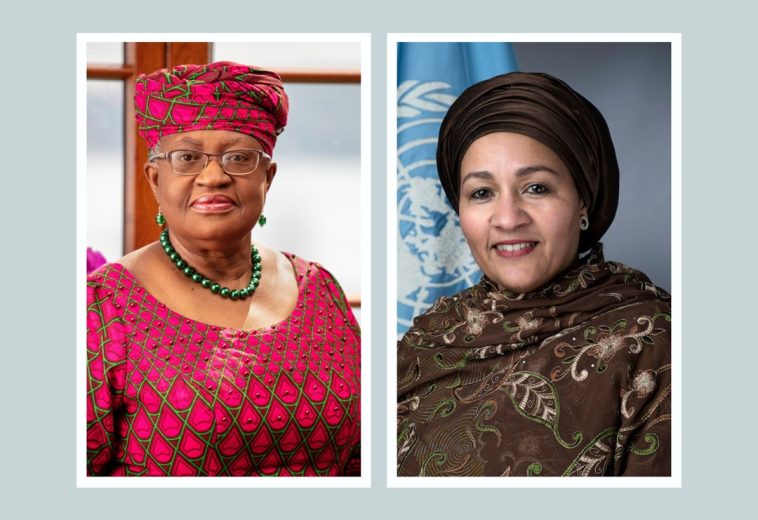The seas surrounding Africa, vast and shimmering under the sun, have for centuries been gateways to trade, culture, and opportunity. Yet, in some these same waters have also become arenas of conflict, exploitation, and peril, where piracy casts a shadow over international commerce. Africa’s coastal nations, with support from global allies, are now fighting back, steering towards a future where security reigns over lawlessness.
According to data from the Oceans Beyond Piracy programme, the cost of piracy off the coast of West Africa has been steadily increasing over the last three years, with the total estimated cost reaching $818 million.
READ ALSO: African Countries Urged To Endorse The Proposed WIPO Broadcasting Treaty To Counter Signal Piracy
Previous incidents have demonstrated that no ship was safe off the coast of Somalia, as armed men in small boats targeted various vessels, including aid ships from the World Food Programme. The ongoing issue of piracy continues to affect the region, hindering both its security and economic development.
Ghosts of the High Seas
Piracy is as old as maritime trade itself. From the notorious Blackbeard of the Caribbean to the Barbary Corsairs of North Africa, piracy has haunted shipping lanes for centuries. In Africa, one of the most infamous modern piracy incidents occurred in 2009 when Somali pirates hijacked the MV Maersk Alabama, a US-flagged container ship, taking Captain Richard Phillips hostage. The dramatic rescue by the US Navy brought global attention to piracy off the Horn of Africa.
The Gulf of Guinea, another piracy hotspot, witnessed an alarming rise in incidents during the early 2000s. In one chilling case in 2020, pirates kidnapped 15 crew members from the chemical tanker Curacao Trader off the Nigerian coast, demanding hefty ransoms. These incidents underscored the evolving threat and growing sophistication of pirates operating in African waters.
The Gulf of Guinea
The Gulf of Guinea, stretching from Senegal to Angola, is a crucial artery for global trade, handling over 40% of Africa’s oil exports. However, its waters have also become a hunting ground for pirates. Armed groups, often linked to organised crime, target oil tankers and cargo ships, seizing hostages for ransom and stealing valuable cargo.
Despite these challenges, African nations are rising to the occasion. Nigeria, the region’s economic powerhouse, launched the Deep Blue Project in 2021, a comprehensive initiative involving air, land, and sea surveillance to deter piracy. The Nigerian Navy, bolstered by modern assets like helicopters, drones, and special forces, has significantly reduced attacks in its waters.
Calming the Tempest in the East
The Horn of Africa, flanking the Gulf of Aden, was once the epicentre of global piracy. Somali pirates, exploiting the collapse of governance in Somalia, terrorised shipping lanes, including the strategic Bab el-Mandeb Strait. At its peak in 2011, Somali piracy cost the global economy an estimated $7 billion annually.
International collaboration helped turn the tide. NATO’s Operation Ocean Shield, combined with the EU-led Operation Atalanta, deployed warships to escort commercial vessels and thwart pirate attacks. These missions demonstrated the power of coordinated naval efforts.
Simultaneously, African-led initiatives like the Djibouti Code of Conduct brought together coastal nations to bolster maritime governance and strengthen regional security frameworks. These efforts, coupled with improved governance in Somalia, have drastically reduced piracy incidents in the region.
The Economic Toll of Troubled Waters
According to the International Maritime Organization (IMO), 150 incidents of piracy and armed robbery against ships were reported globally in 2023. This represents an increase of about 15% compared to the previous year. Additionally, 23 Bangladeshi crew members are currently being held hostage after a Somali pirate attack in March 2024.
The One Earth Future (OEF) Foundation reveals that maritime piracy is costing the international economy between $7 to $12 billion annually.
These economic shocks are not just borne by multinational corporations but also by African nations themselves. Oil theft and illegal fishing, often linked to maritime insecurity, deplete national revenues and deprive local communities of vital resources.
Collaboration as the Compass
Africa has embraced partnerships to combat piracy, recognising that safeguarding its waters requires collective effort. The African Union (AU) has championed the 2050 Africa’s Integrated Maritime Strategy (AIMS), aiming to foster a secure and sustainable maritime domain.
Key regional collaborations include the Yaoundé Code of Conduct, signed by 25 West and Central African nations. This agreement has led to the establishment of maritime coordination centres that enhance information-sharing and joint responses to threats.
International allies have also played a pivotal role. The United States’ Africa Maritime Security Initiative, along with the deployment of its naval forces, has supported African nations in surveillance and capacity-building. Similarly, NATO continues to provide training, while private maritime security firms supplement naval efforts on high-risk routes.
How Africa is Winning
In the Gulf of Guinea, piracy incidents have declined sharply. The IMB reported a 60% reduction in attacks in 2022, attributing this success to Nigeria’s Deep Blue Project and increased regional cooperation. Patrols by the Nigerian Navy, often coordinated with international partners, have disrupted pirate strongholds, pushing them further offshore and reducing their effectiveness.
Martha Ama Akyaa Pobee, Assistant Secretary-General for Africa in the Departments of Political and Peacebuilding Affairs and Peace Operations, presenting the Secretary-General’s report on piracy and armed robbery at sea in the Gulf of Guinea, stated that incidents have continued to decrease. This steady decline resulted from concerted efforts by national authorities, with the support of regional and international partners, the regular deployment of naval assets by international partners, and piracy convictions in Nigeria and Togo in 2021. However, piracy in the Gulf has also evolved over the past decade, with criminal networks shifting to other crimes, such as oil bunkering and theft.
In the Horn of Africa, Somali piracy has been virtually eradicated. African coastal nations, supported by international naval coalitions, have not only dismantled pirate networks but also improved port security and enhanced local livelihoods to address piracy’s root causes.
Sailing Into the Future
The fight against piracy in Africa is far from over. Climate change, political instability, and poverty continue to fuel maritime crimes. However, Africa’s coastal nations have demonstrated resilience and adaptability, anchoring their responses in regional solidarity and international collaboration.
As the waves calm and trade routes reopen, Africa stands as a role model for what can be achieved when nations unite against a common foe. The continent is not only securing its seas but also navigating towards a future where its waters are a source of prosperity, not peril.




